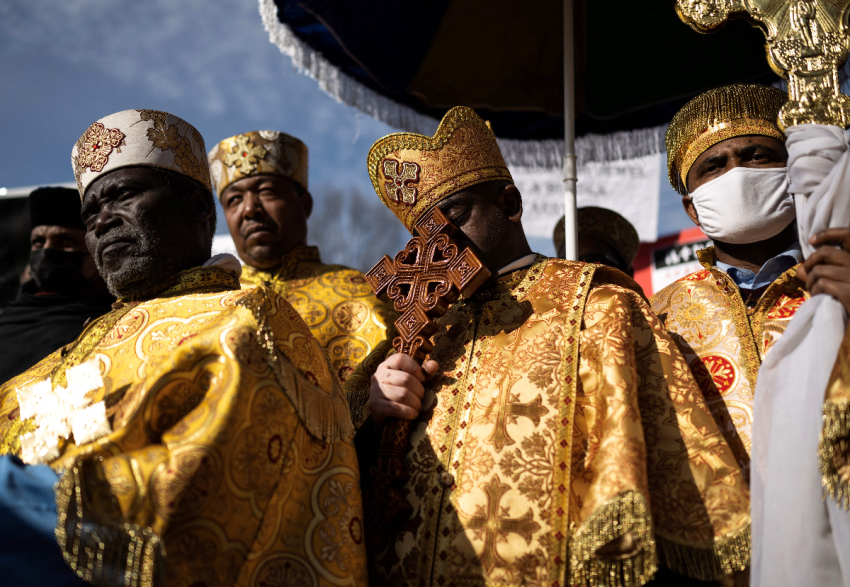Ethiopia suspends social media as Orthodox church rift protests turn deadly

Ethiopia has restricted access to social media platforms amid anti-government protests sparked by a rift within the country's Orthodox Church. The government has been accused of backing the bishops who have formed a breakaway synod.
At least 30 people have been killed in protests since last Saturday, Ethiopian Orthodox Tewahedo Church said in a statement Thursday.
Also on Thursday, the internet watchdog NetBlocks confirmed that access to Facebook, TikTok and Telegram had been restricted, Reuters reported.
Last month, rebel bishops formed their own synod in the country's largest geographic region of Oromia. The church declared it illegal and excommunicated the bishops involved. The breakaway bishops claimed that the church had discriminated against them to maintain their linguistic and cultural "hegemony," a claim that the patriarchate has rejected.
About 40% of Ethiopia's 120 million people are members of the Ethiopian Orthodox Tewahedo Church, one of the oldest Christian institutions in the world.
Earlier this week, anti-government rallies were held in several cities and towns, mostly in Oromia and the outskirts of the capital, Addis Ababa, The Associated Press reported.
The Orthodox Church has accused the government of interference in its internal matters and has announced plans to hold a demonstration on Sunday, despite the government's warning. The government has accused some unidentified groups of attempting to destabilize the East African country.
The church called the government's ban "a declaration to destroy the church once and for all."
On Friday, discussions were reportedly underway between Prime Minister Abiy Ahmed and the church patriarch to resolve the controversy.
Last Saturday, three people were killed and at least four injured by alleged security forces in an attack on St. Michael Church in the Shashamene area of Oromia, the church-affiliated Tewahedo Media Center said at the time.
Local church sources told the Ethiopian news outlet Borkena that Oromia regional special forces opened fire on a crowd protecting the church from being taken over by what they say is an illegally appointed bishop.
In a statement shared by the news outlet, the Holy Synod called the action of the regional forces "public murder."
The synod said that the breakaway bishops and their new synod, which calls itself the "Holy Synod of Oromia and Nations and Nationalities," were causing significant harm by forcibly invading and taking over pontificates and offices belonging to the Ethiopian Orthodox Tewahedo Church with the help of government forces.
The synod also criticized the government for failing to uphold the law and the rights of the church by supporting illegal groups, according to The Addis Standard.
The government previously shut down or restricted access to the internet during periods of political unrest, including in response to protests in 2020 following the killing of a popular singer from Oromia and in the northern Tigray region.
The Tigray conflict began after the Tigray People's Liberation Front attacked an Army base as part of an uprising in the region, which sparked military responses from Ethiopian forces joined by defense forces from neighboring Eritrea in November 2020.
Organizations, including Amnesty International, CNN and Sky News, have previously published investigations into massacres against civilian populations, including by Ethiopian National Defense Forces, in the Tigray region.



























